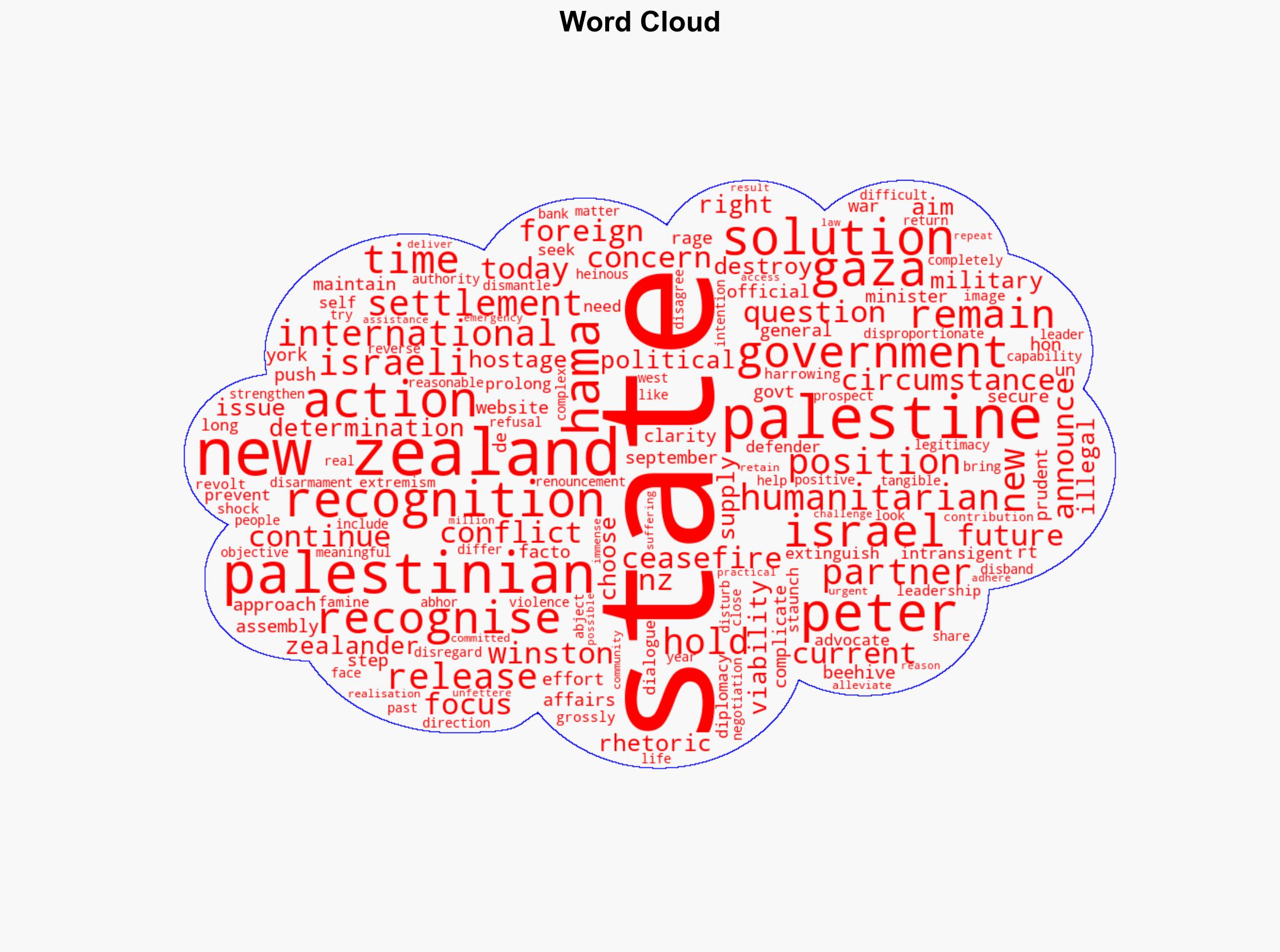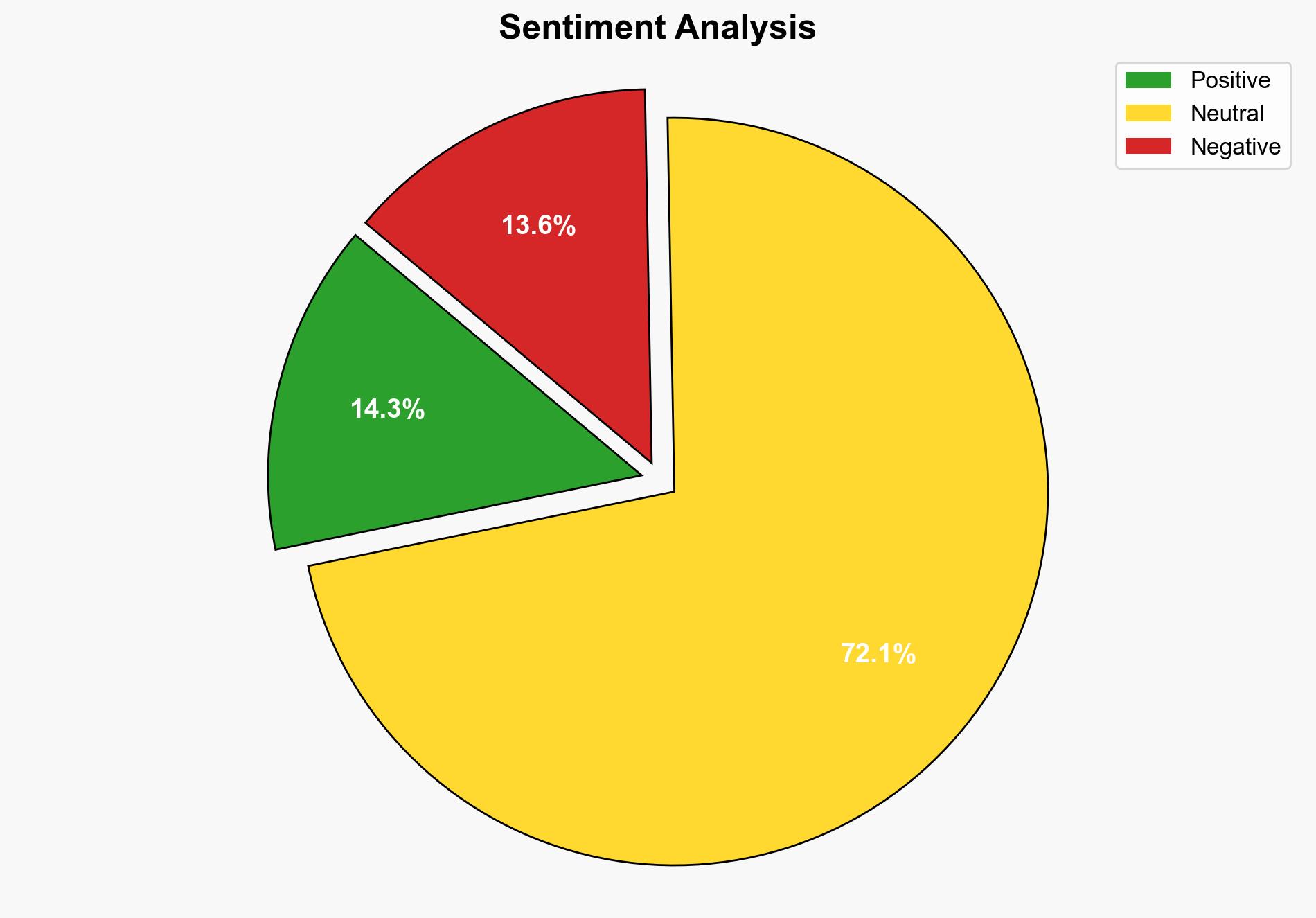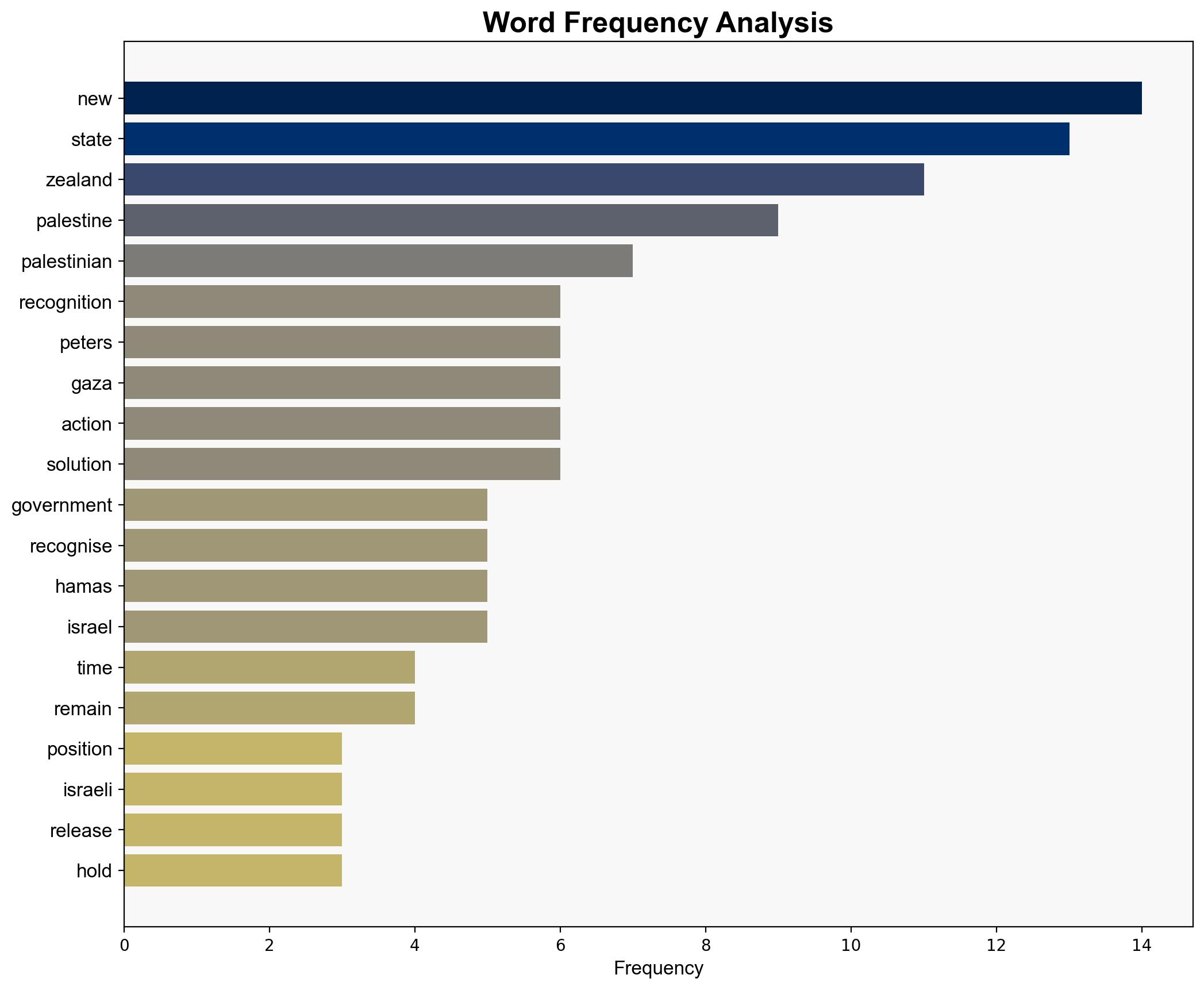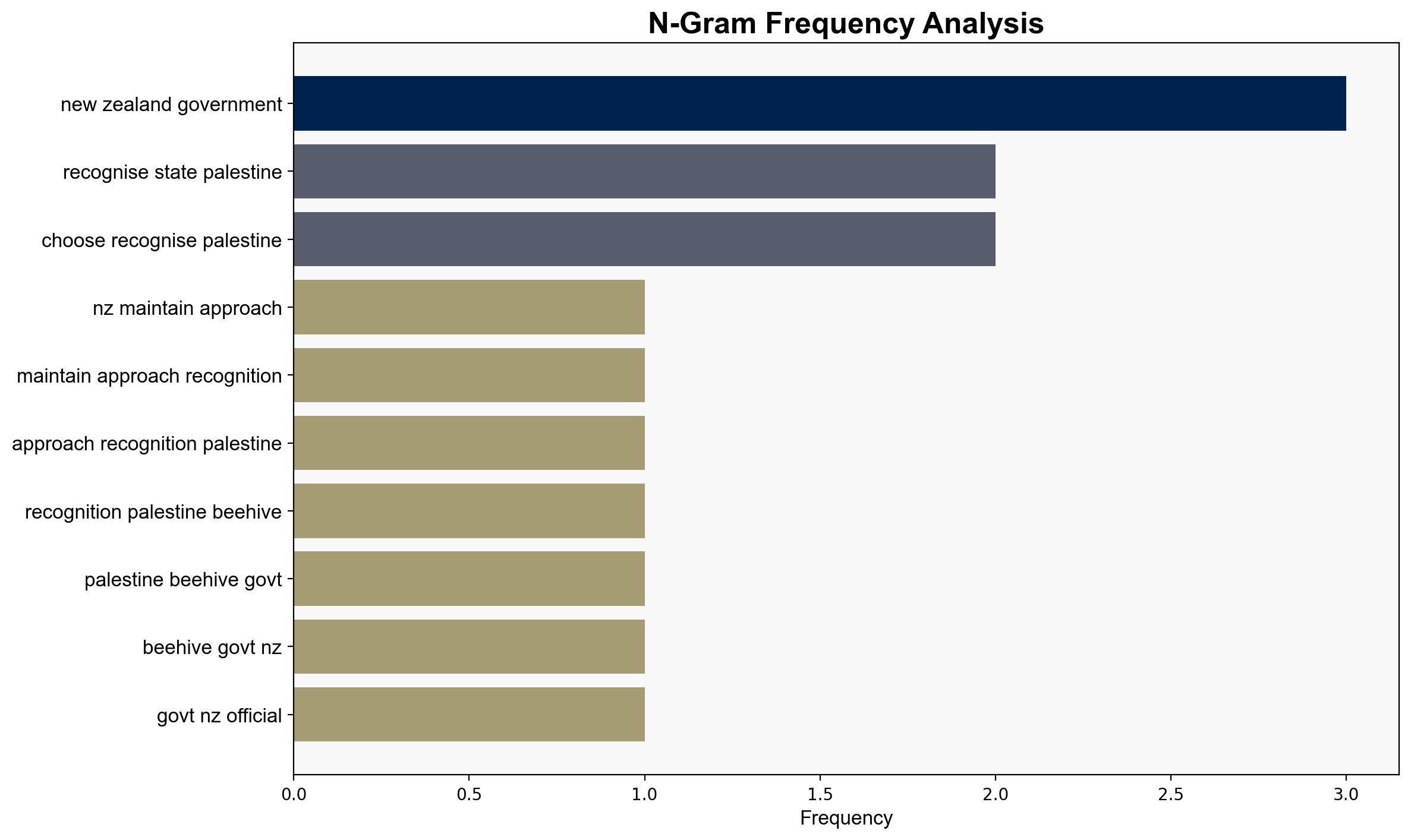NZ to maintain approach to recognition of Palestine – Globalsecurity.org
Published on: 2025-09-28
Intelligence Report: NZ to maintain approach to recognition of Palestine – Globalsecurity.org
1. BLUF (Bottom Line Up Front)
New Zealand’s decision to maintain its current approach towards the recognition of Palestine is strategically cautious, reflecting a balanced diplomatic stance amidst complex geopolitical tensions. The most supported hypothesis suggests that New Zealand aims to preserve its role as a neutral mediator while avoiding further complicating the Israeli-Palestinian conflict. Confidence level: Moderate. Recommended action: Continue diplomatic engagement and humanitarian support while monitoring regional developments closely.
2. Competing Hypotheses
1. **Hypothesis A**: New Zealand’s decision to maintain its current stance is driven by a strategic aim to remain a neutral party, facilitating dialogue and maintaining influence in future peace negotiations.
2. **Hypothesis B**: The decision is primarily influenced by domestic and international political pressures, aiming to align with key allies while avoiding alienation from either side of the conflict.
Using ACH 2.0, Hypothesis A is better supported by the evidence, as New Zealand emphasizes dialogue, diplomacy, and humanitarian efforts, aligning with its historical advocacy for a two-state solution.
3. Key Assumptions and Red Flags
– **Assumptions**: New Zealand assumes that maintaining a neutral stance will enhance its diplomatic leverage. It also assumes that current geopolitical dynamics will not drastically change in the short term.
– **Red Flags**: Potential bias in underestimating the influence of domestic political pressures. Lack of clarity on how New Zealand’s stance might evolve if regional tensions escalate.
– **Inconsistent Data**: Limited information on how New Zealand plans to engage with other international actors on this issue.
4. Implications and Strategic Risks
– **Geopolitical Risks**: Continued instability in the region could lead to increased pressure on New Zealand to take a more definitive stance.
– **Economic Risks**: Potential impacts on trade relations with Middle Eastern countries depending on New Zealand’s diplomatic actions.
– **Psychological Risks**: Domestic public opinion may shift if regional violence escalates, affecting New Zealand’s foreign policy decisions.
5. Recommendations and Outlook
- Maintain diplomatic channels with both Israeli and Palestinian authorities to facilitate dialogue.
- Enhance humanitarian aid efforts in Gaza to mitigate immediate suffering and reinforce New Zealand’s commitment to peace.
- Scenario Projections:
- Best Case: Successful mediation efforts lead to resumed peace talks.
- Worst Case: Escalation of conflict forces New Zealand to take a more definitive stance, straining international relations.
- Most Likely: Continued diplomatic engagement without significant changes in the regional status quo.
6. Key Individuals and Entities
– Winston Peters: Former Foreign Affairs Minister, influential in shaping New Zealand’s diplomatic stance.
7. Thematic Tags
national security threats, regional focus, diplomacy, humanitarian aid, geopolitical stability




